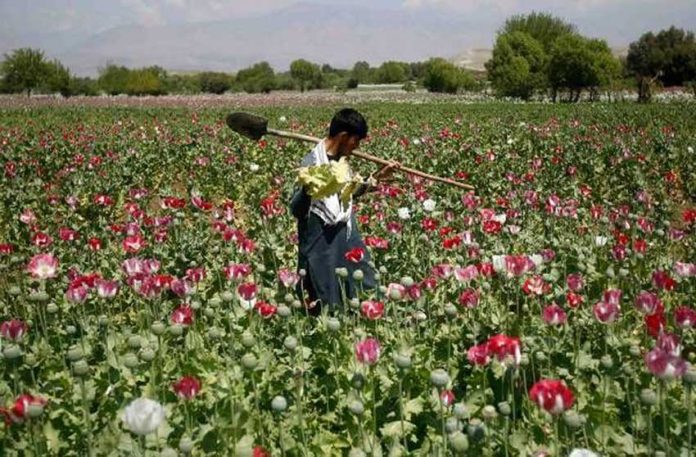A group of community leaders from the Sierra region of Guerrero has appealed to president-elect Andrés Manuel López Obrador to legalize the cultivation of opium poppies for use in the manufacture of legal pharmaceuticals.
“As a priority, we are seeking the legalization of the cultivation of poppies for medicinal purposes so that farmers in the Sierra are no longer criminalized,” Arturo López Torres, a member of a local union that advocates for economic and social development, told the newspaper El Universal.
The union is also calling on López Obrador to explain whether poppy farmers who have been imprisoned for growing the illicit crop would be covered by the next government’s proposed amnesty law.
“If they legalize poppy crops, the amnesty will fade into the background for the farmers who are currently growing poppies because it would no longer be a crime but it will help those who are in jail at the moment,” López said.
He also said the union has already contacted the teams of future interior secretary Olga Sánchez Cordero and prospective public security secretary Alfonso Durazo to arrange meetings to discuss the legalization proposal, but added that dates have not yet been set.
Sánchez said earlier this week that López Obrador has given her a “blank check” to explore the possibility of legalizing drugs as well as any other measures that could help restore peace to Mexico.
Another member of the Union of Commissioners for the Development of the Guerrero Sierra said Thursday that around 80 families have left his community — Filo de Caballos in the municipality of Leonardo Bravo — due to violence and a decline in opium paste sales. Similar exoduses have occurred from other communities in the region.
“The people of the Sierra are living in extreme poverty and we want the government-elect to turn its eyes to the [area],” Alfonso González Pacheco said.
López, who also lives in Filo de Caballos, said that while there continues to be poverty due to a lack of job opportunities, legalizing poppy cultivation is necessary.
Of 100,000 residents in the Sierra region — which is made up of 14 municipalities in the geographical center of the southern state — around 50,000 of them work in opium poppy production, he said.
López explained that declining opium paste sales and a drastic slump in its price have created an economic crisis because most residents have very little money to spend in the local economy.
“If the poppy harvest isn’t sold, avocados and peaches won’t sell. I’ve got pigs; I don’t grow poppies but if people don’t have money, nothing sells,” he said.
The demand for opium paste has declined due to the rise in popularity and greater accessibility of the synthetic opioid fentanyl in the United States, much of which is shipped illegally from China.
State security spokesman Roberto Álvarez Heredia said the Guerrero government is open to having the debate about legalizing opium poppies for medicinal purposes.
With regard to the amnesty proposal, Álvarez said that only people who can prove that their involvement with poppies doesn’t go beyond cultivation should be eligible.
In 2016, Governor Hector Astudillo proposed the legalization of the cultivation of opium poppies as a means to reduce violence but the proposal never gained traction.
Guerrero is one of Mexico’s most violent states, largely due to turf wars between criminal gangs that are fighting for control of different regions, including the Sierra and the notoriously dangerous Tierra Caliente.
It is one of five Mexican states that the United States government warns its citizens against traveling to.
Source: El Universal (sp)
